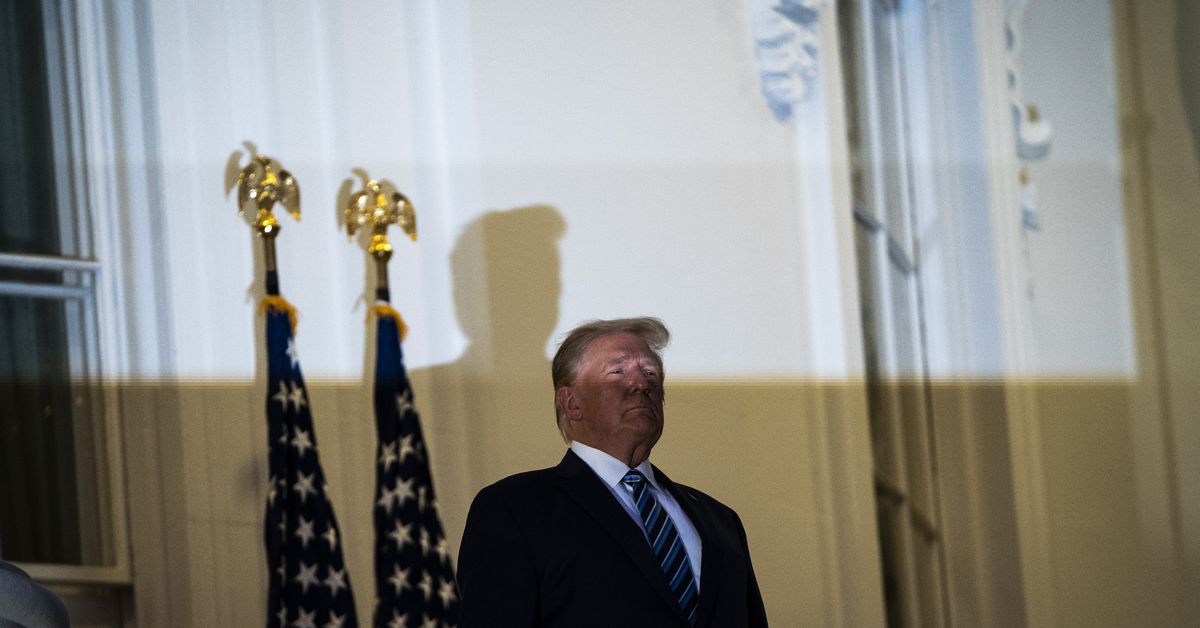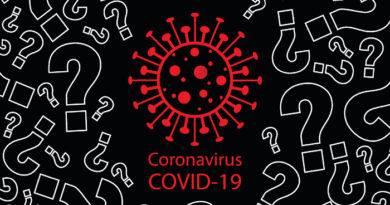Trump’s Covid-19 diagnosis sparks new hydroxychloroquine misinformation

Much of the United States woke up to the news that President Trump had tested positive for the coronavirus last Friday. Many turned to social media with theories about how Trump was faking it or had been targeted by an assassination plot. The most popular conspiratorial idea, however, was rooted in a familiar hoax: hydroxychloroquine.
Mentions of hydroxychloroquine spiked in the hours and days following the president’s Covid-19 diagnosis, according to data from the media intelligence firm Zignal Labs, which monitors misinformation on social media, traditional media, and other online sources. The majority of these mentions involved people calling for Trump to be treated with hydroxychloroquine, a malaria drug that’s been widely shown as ineffective as a Covid-19 treatment. Trump has been treated with an experimental antibody treatment developed by Regeneron, as well as remdesivir and dexamethasone.
The prevalence of online discussions around hydroxychloroquine highlights how misinformation about the drug — much of which was promoted by Trump himself — has become deeply ingrained in the public consciousness. And the durability of the hydroxychloroquine myth suggests that the endless stream of false and misleading claims from Trump that downplay the severity of Covid-19 will have a lasting negative impact. As a Cornell University study recently found, the president is the “single largest driver of misinformation around Covid.” It now appears that even this so-called infodemic is also shaping public conversation around Trump’s own illness.
The volume of online discussion about Trump and hydroxychloroquine versus other misinformation wasn’t even close. From October 1 to October 5, there were 336,286 mentions of hydroxychloroquine related to Trump’s diagnosis, and 106,000 specifically included calls for Trump to be treated with hydroxychloroquine or links to articles that called for that treatment, according to Zignal Labs. A smaller number of those mentions pointed out that Trump received several treatments but that hydroxychloroquine was not one of them. Mentions of all of these phrases were almost nonexistent in the days leading up to Trump’s diagnosis.
There were newer conspiracy theories, too. The next most popular misinformation topic were allusions to the idea that Trump was faking the illness, of which there were 86,977. Conspiracy theories about a plot to kill the president — including claims that Trump was intentionally infected at the debate and that teams of Deep State assassins had pursued the president — came next with about 33,000 mentions. There were also 13,768 mentions about how masks don’t help to prevent transmission of the virus, which pointed to senators who were infected but had been seen wearing masks.
While Trump’s ongoing battle with Covid-19 is bound to fuel speculation about how and why the president got infected, the immediate surge of discussion about treating him with hydroxychloroquine shouldn’t come as a huge surprise. As early as March, some experts said the drug was an effective treatment for the disease, a claim that Trump promoted to his supporters for weeks. Trump’s doctors even said in early June — months before he tested positive for the coronavirus — that the president underwent a two-week course of hydroxychloroquine “safely and without side effects.” Less than two weeks later, the Food and Drug Administration (FDA) said that the drug was “unlikely to produce an antiviral effect.” Speculation about hydroxychloroquine has nevertheless continued on mainstream conservative media outlets like Breitbart, Fox News, and the Federalist.
“To be clear, because hydroxychloroquine got so much attention from the president, and was subsequently studied so heavily, it’s probably one of the things in the pandemic where the science is the most settled,” Kellie Owens, a health researcher at Data & Society, told Recode. “The most recent meta-analysis of randomized controlled trials that I’ve seen showed no benefit to hydroxychloroquine, and suggests potential increases in mortality.”
As far as the public knows, Trump has not received hydroxychloroquine since he tested positive for the coronavirus. And why would he? It’s a potentially dangerous treatment.
Why hundreds of thousands of people would call for the president to receive the drug is not quite as simple, but the situation ultimately boils down to the amount of time and attention hydroxychloroquine has gotten in the press and on social media. Consider late July, when Trump and his son, Don Jr., shared a video of Houston doctor Stella Immanuel claiming that hydroxychloroquine could help cure Covid-19 and that “you don’t need to wear a mask.” After being promoted by Breitbart and the Trumps, the video went viral in a matter of hours but was quickly discredited and removed from Facebook and Twitter for spreading false claims about Covid-19. Don Jr. actually got suspended from Twitter for sharing it, and Immanuel skyrocketed to social media stardom. Previously unknown, Immanuel now has nearly 200,000 Twitter followers. (Immanuel also says she’s under investigation by the Texas Medical Board.)
Now we know that thousands of people online continue to cling to the false hope that hydroxychloroquine cures Covid-19. On October 2, the day that Trump announced his positive test result, one of the most popular posts on Facebook, according to engagement data from the social media analytics firms CrownTangle and NewsWhip, highlights a tweet in which Immanuel offered to prescribe hydroxychloroquine to President Trump if his own doctors wouldn’t. The post had over 623,000 interactions.
Everyone in the White House get on HCQ twice a month. With daily vit C, D, and zinc. If your doctors will not prescribe it I will. I can see you via telehealth emergency licensed in DC. Use https://t.co/jTDgb5Et5p and I will hook you guys up. POTUS, FLOTUS don’t wait to get sick.
— Stella Immanuel MD (@stella_immanuel) October 2, 2020
It’s hard to identify exactly why the hydroxychloroquine myth remains so popular. Some say early observational studies that suggested the drug had some benefit made some people believe that the deadly pandemic could end with a miracle drug. Trump’s promotion of such a fantasy just expanded its reach.
“Often, you have to dig down to find a small grain of truth that can be used to promote that sort of misinformation narrative,” said John Gregory, a senior analyst at NewsGuard. He explained that the narrative about hydroxychloroquine as a cure had many months to take hold as it circulated through mainstream media sources and on social media.
“It became more ingrained in the audience that this was already a proven cure, and they’re going to reject the new evidence,” Gregory said.
Again, with this context in mind, it’s chilling to consider the long-term implications of Trump’s most recent statements about the Covid-19. Since being diagnosed and hospitalized with the disease, the president has said that Americans must “not be afraid of” the coronavirus or “let it dominate your lives.” He’s also continued to suggest, recklessly, that Covid-19 is less severe than the flu. These statements fuel a frightening and dangerous narrative about the pandemic that distrusts science and stands to shape the public’s response to a deadly pandemic.
And for now, thanks in part to Trump’s history of spreading misinformation, the hydroxychloroquine saga continues, even if the drug doesn’t work against Covid-19.
Millions turn to Vox each month to understand what’s happening in the news, from the coronavirus crisis to a racial reckoning to what is, quite possibly, the most consequential presidential election of our lifetimes. Our mission has never been more vital than it is in this moment: to empower you through understanding. But our distinctive brand of explanatory journalism takes resources. Even when the economy and the news advertising market recovers, your support will be a critical part of sustaining our resource-intensive work. If you have already contributed, thank you. If you haven’t, please consider helping everyone make sense of an increasingly chaotic world: Contribute today from as little as $3.
*** This article has been archived for your research. The original version from Vox.com can be found here ***


